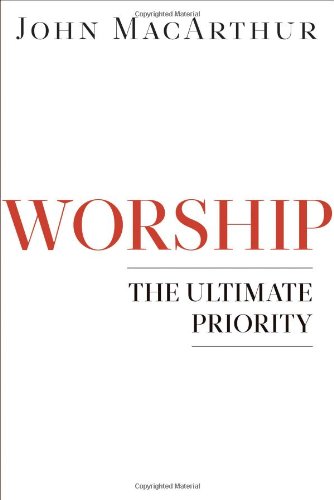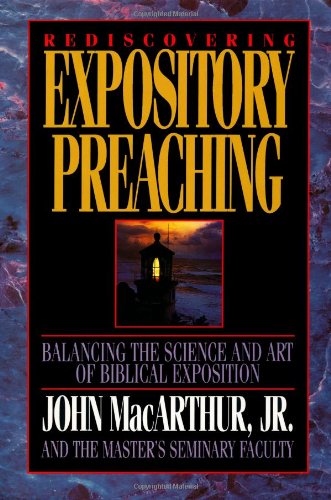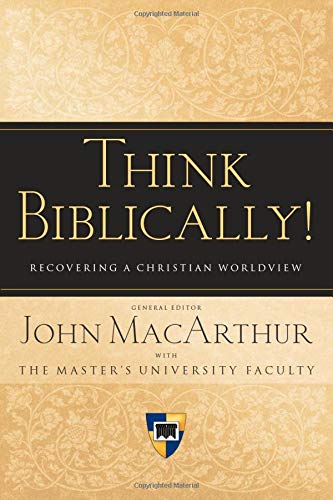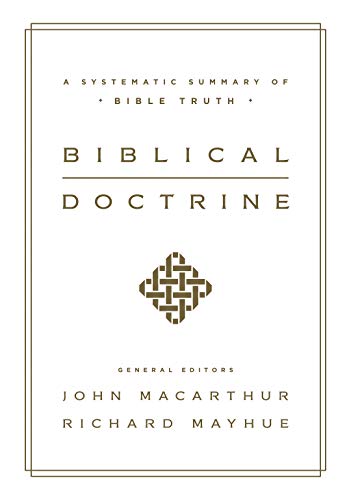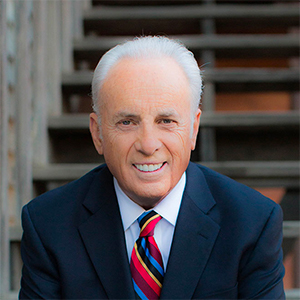
Quotes by John MacArthur
We would not be surprised if the apostle Paul took a whole chapter, or even an entire epistle, to outline the responsibilities of parents. Instead, he summarized all of parenting in a single verse, and he was able to do so because the task is so highly defined. “Bring them up in the training and admonition of the Lord.”
What Scripture says about parenting is actually quite simple and straightforward: You have a depraved and foolish child, and if you want him not to be so foolish, spank him (Proverbs 22:15). You have a solemn responsibility before God to provide an environment of nurture and instruction where your child will constantly be exposed to God’s truth (Deuteronomy 6:6-7). In short, you need to be careful not to provoke your children to wrath, but bring them up in the training and admonition of the Lord (Ephesians 6:4).
Don’t just teach your children external self-control; train them to understand temptation and resist it. Don’t just teach them manners; teach them why pride is sinful and why greed, lust, selfishness, and covetousness dishonor God. Punish them for external offenses, but teach them that the root issue is always a deeper problem – corruption in their hearts. When you correct them, don’t do it merely to satisfy you as the offended, irritated, frustrated parent. That’s anger; it’s vengeance. But when you correct them help them to see that it is first of all God who has been offended and that He offers reconciliation through Jesus Christ (2 Corinthians 5:20).
There are really two major obstacles all parents face in teaching their children to obey: not only is the world they live in corrupt, but they themselves are sinful creatures too. They face a difficult struggle both inside and outside.
Children have a heart problem. They are constitutionally sinful. Like their parents, and like the rest of the Adamic race, they are fallen. What they need most are regenerate hearts. This is the most fundamental issue in parenting. It’s not ultimately about behavior; it’s all about the child’s heart.
A study was conducted several years ago covering a span of years by sociologists Sheldon and Eleanor Glueck from Harvard and they identified after all of this study four crucial factors in predicting children who were not delinquents. This was a multi-year study and it was found to be 90 percent accurate. They said these are the four essential factors to prevent delinquency, just purely from the observation of those worldly people. One, the father’s discipline, fair, firm and consistent. Two, the mother’s supervision in the home, knowing where the children are all the time, knowing what they’re doing and being available to them. Three, the parents unceasing affection demonstrated to each other and to the children frequently. And fourthly, the family’s cohesiveness, time spent together.
God’s Pattern for Parents – Part 2, The article originally appeared (www.gty.org/Resources/Sermons/1950B) at www.gty.org. © 1969-2008. Grace to You. All rights reserved. Used by permission.
How can you provoke your child into anger (Eph. 6:24)?… Here are some easy steps:
1. Spoil him.
2. Give him everything he wants, even more than you can afford. Just charge it so you can get him off your back.
3. When he does wrong, nag him a little but don’t spank him.
4. Foster his dependence on you. Don’t teach him to be independently responsible. Maintain his dependence on you so later drugs and alcohol can replace you when he’s older.
5. Protect him from all those mean teachers who want to discipline him from time to time. And threaten to sue them if they don’t let him alone.
6. Make all of his decisions for him because he might make mistakes and learn from them if you don’t.
7. Criticize his father to him, or his mother, so your son or daughter will lose respect for his parents.
8. Whenever he gets into trouble, bail him out. Besides if he faces any real consequence, it might hurt your reputation.
9. Never let him suffer the consequences of his behavior. Always step in and solve his problems for him so he will depend on you and run to you when the going gets tough and never learn how to solve his problems.
10. If you want to turn your child into a delinquent, let him express himself anyway he feels like it.
11. Don’t run his life, let him run yours.
12. Don’t bother him with chores. Do everything for him then he can be irresponsible all his life and blame others when things don’t get done right.
13. Be sure to give in when he throws a temper tantrum.
14. Believe his lies because it’s too much hassle to try to sort through to get the truth.
15. Criticize others openly; criticize others routinely so that he will continue to realize that he is better than everybody else.
16. Give him a big allowance and don’t make him do anything for it.
17. Praise him for his good looks, never for character.
God’s Pattern for Parents – Part 2, The article originally appeared (www.gty.org/Resources/Sermons/1950B) at www.gty.org. © 1969-2008. Grace to You. All rights reserved. Used by permission.
How do parents provoke their children? Here are some of the ways:
1. Overprotection
2. Favoritism
3. Overemphasizing achievement
4. Overindulgence
5. Discouragement
6. Failure to make personal sacrifices
7. Failure to allow for childish limitations
8. Neglect
9. Physical and verbal abuse.
Adapted from: Cultivating a Godly Child, The article originally appeared (www.gty.org/Resources/Positions/111) at www.gty.org. © 1969-2008. Grace to You. All rights reserved. Used by permission.
A spiritual gift is a supernaturally designed ability granted to every believer by which the Holy Spirit ministers to the body of Christ. A spiritual gift cannot be earned, pursued or worked up. It is merely "received" through the grace of God.
Nowhere in Scripture do we see real gifts of the Spirit operating when someone is out of control or under some sort of supernatural seizure. Nowhere does the New Testament teach that the Spirit of God causes Christians to fall into a trance, faint, or lapse into frenzied behavior. On the contrary, “The fruit of the Spirit is…self-control” (Gal. 5:22-23).
Spiritual gifts are divine enablements for ministry, characteristics of Jesus Christ that are to be manifested through the body corporate just as they were manifested through the body incarnate.
Our purpose should be to discover the gifts He has given us and to use those gifts faithfully and joyfully in His service, without either envying or disparaging the gifts we do not have.
The necessary result of God’s saving work is a transformed person. When a soul is redeemed, Christ gives a new heart (cf. Ezekiel 36:26). Implicit in that change of heart is a new set of desires – a desire to please God, to obey, and to reflect His righteousness. If such a change does not occur, there is no reason to think genuine salvation has taken place.
God’s grace is His unmerited favor toward the wicked, unworthy sinners, by which He delivers them from condemnation and death.
The basic task of the church is to teach sound doctrine. It is not to give one pastor’s opinion, to recite tear-jerking illustrations that play on emotions, to raise funds, to present programs and entertainment, or to give weekly devotionals. In Titus 2:1 Paul writes, “But as for you, speak the things which are fitting for sound doctrine.”
There’s no mechanism that we possess that tells us at the moment when the Holy Spirit is leading us and in some supernatural way. But that in retrospect we will be able to discern by the providences of God that unfold.
Practical Concerns in the Local Church, http://www.gty.org/resources/sermons/GTY135/Practical-Concerns-in-the-Local-Church-An-Interview-with-John-MacArthur.
Many churches have de-emphasized preaching and worship in favor of entertainment, apparently believing they must lure converts by appealing to fleshly interests. As if Christ Himself were in some way inadequate, many church leaders now believe they must excite people’s fancies in order to win them.
Preface from Our Sufficiency in Christ, 1991, Crossway Books, a division of Good News Publishers, Wheaton Illinois 60187, www.crosswaybooks.org. p. 21.
The only way out of a trial is through it. The Lord promises no bypasses, only that He will always see His people through the trials without their suffering spiritual harm.
Generosity is impossible apart from our love of God and of His people. But with such love, generosity not only is possible but inevitable.
God made all of His creation to give. He made the sun, the moon, the stars, the clouds, the earth, the plants to give. He also designed His supreme creation, man, to give. But fallen man is the most reluctant giver in all of God’s creation.
God saves believers by imputing to them the merit of Christ’s perfect righteousness – not in any sense because of their own righteousness. God accepts believers in Christ. He declares them perfectly righteous because of Christ. Their sins have been imputed to Christ, who has paid the full penalty. His righteousness is now imputed to them, and they receive the full merit for it. That is what justification by faith means.
What Will Heaven be Like taken from The Glory of Heaven by John MacArthur, copyright 1996, Crossway Books, a division of Good News Publishers, Wheaton Illinois, 60187, www.crosswaybooks.org, page 73.
You are the only Bible some unbelievers will ever read, and your life is under scrutiny every day. What do others learn from you? Do they see an accurate picture of your God?
The Greek word translated “example” is tupos, which means model, image, or pattern… When you set an example, you are giving people a pattern to follow. Someone once said, “Your life speaks so loud I can’t hear what you say.” Your lifestyle is your most powerful message.
I normally prefer to avoid using the term Calvinism because it often provokes too much emotion and too many misconceptions to be useful if the goal is real understanding rather than merely vigorous debate. Besides, my preference has always been to deal with the doctrines of election, free will, predestination, and related ideas from the standpoint of the Bible, rather than all together as a theological system with a man’s name attached to it.
Is it easy to convince someone that the Bible is the Word of God on the basis of its unity, its scientific, historical accuracy, its miracles, its archaeological evidence? I haven’t found that to be the case. In a special series spread over a three-week period I presented such data at a private college in California. I felt the proof was overwhelming and not one person became a believer. Why doesn’t it convince all unbelievers when it’s so convincing to us? Paul said it when he wrote, “The man without the Spirit does not accept the things that come from the Spirit of God, for they are foolishness to him and he cannot understand them, because they are spiritually discerned” (1 Cor. 2:14). Only when the Holy Spirit does His regenerating work, only as He opens the mind, tears off the scales of blindness, gives life where there is death and plants the marvelous understanding of the revelation of God, only then do people come to believe and trust in the Bible. The reason I know the Bible is true is that the Spirit of God has convinced me of it.
Of all the attributes of God, holiness is the one that most uniquely describes Him and in reality is a summarization of all His other attributes. The word holiness refers to His separateness, His otherness, the fact that He is unlike any other being. It indicates His complete and infinite perfection. Holiness is the attribute of God that binds all the others together. Properly understood, it will revolutionize the quality of our worship.
People do not have to do something to go to hell; they just have to do nothing to go to hell.
Treating Christ with Criticism and Indifference, Matthew 11:16-24. The article originally appeared (www.gty.org/Resources/Sermons/2287) at www.gty.org. © 1969-2008. Grace to You. All rights reserved. Used by permission.
It’s amazing how people can affirm that God is a God of order and absolute precision in everything He does in the natural world, yet believe He unconcerned about the moral world. The scientist in the laboratory operates on the basis that his chemical mixtures are not going to violate a known truth and blow the building to bits. The astronauts who blast off into space count on the absolute immutability and accuracy of scientific laws. If God is a God of law and order in the natural realm, He’s not going to say, “Oh, just do your own thing. Believe anything you want.” Such inconsistency is absurd!
When a believer is in the place of obedience, no matter how severe the storm, he is as safe as if he were at home in his own bed, because the place of security is not the place of proper circumstances or of desirable circumstances. The place of security and safety, for the believer, is the place of obedience to the Lord. They were safe in the midst of a storm in obedience.
Worshipping the Son of God-Part II. The article originally appeared (http://www.gty.org/Resources/Sermons/2310) at www.gty.org. © 1969-2008. Grace to You. All rights reserved. Used by permission.
The effects of slander are always long-lived. Once lies about you have been circulated, it is extremely difficult to clear your name. It’s a lot like trying to recover dandelion seeds after they have been thrown to the wind.
The church…is not nearly so careful not to gossip about someone’s sinning as it is not to confront it and call for it to stop.
Despite our seemingly casual attitude toward it, slander is a particularly destructive sin. Writing in the 1828 edition of his dictionary, Noah Webster defined slander as “a false tale or report maliciously uttered, and tending to injure the reputation of another by lessening him in the esteem of his fellow citizens, by exposing him to impeachment and punishment, or by impairing his means of living.” Slander strikes at people’s dignity, defames their character, and destroys their reputation – their most priceless worldly asset (Proverbs 22:1; Ecclesiastes 7:1).
Most North American Christians have things so good right here in this world that they don’t really know what it is to long for heaven. God has blessed us with an abundance of earthly comforts – more than any prior generation in history. There is a danger that we become so comfortable in this life that we forget we are but strangers and pilgrims in this world. Like Abraham, we’re supposed to think of ourselves as vagabonds here on earth, looking for a city with eternal foundations, whose builder and maker is God (Heb. 11:10)… I often meet Christians who live as if heaven would be an unwelcome intrusion into their busy schedule – an interruption of career goals or holiday plans.
The Modern Romance with Heaven taken from The Glory of Heaven by John MacArthur, copyright 1996, Crossway Books, a division of Good News Publishers, Wheaton Illinois,60187, www.crosswaybooks.org, page 11.
In my mind, the worst sin that any human being could ever, would ever, or has ever committed is very clear. The worst possible sin would be to kill the Son of God. I can’t imagine anything worse than that; it not only embodies murder, but the most hateful, venomous, vicious rejection of God. Yet it is precisely that sin which Jesus demonstrates is forgivable. In Luke 23:34, as He hangs on the cross, He looks down at those who have taken His life, then He looks to the Father and says, “Father, forgive them.” Even killing the Son of God is forgivable. It isn’t the volume of sin that is unforgivable any more than it is the kind of sin.
Blaspheming the Holy Spirit, Part 1, Matthew 12:22-30. The article originally appeared (www.gty.org/Resources/Sermond/2292) at www.gty.org. © 1969-2008. Grace to You. All rights reserved. Used by permission.
Naturalism itself is a religious belief. The conviction that nothing happens supernaturally is a tenet of faith, not a fact that can be verified by scientific means. Indeed, an a priori rejection of everything supernatural involves a giant, irrational leap of faith.
Religion is exactly the right word to describe naturalism. The entire philosophy is built on a faith-based premise. Its basic presupposition – a rejection of everything supernatural – requires a giant leap of faith. And nearly all its supporting theories must be taken by faith as well.
[The Bible] presents a most plausible understanding of the universe and the existence of life. It presents a God who creates. That makes more sense than believing that everything came out of nothing – that nobody times nothing equals all things – which is essentially what the theory of evolution says. I have an easier time assuming that everything was produced by someone. And the Bible tells me who that someone is: God.
As Christians we accept one foundational truth – God – and everything else makes sense. An atheist denies God and has to accept incredible explanations for everything else. It takes more faith to deny God than to believe in Him.
The error of pragmatism is that it regards methodologies that “work” as more important and more viable than those that are biblical. A pragmatist is concerned primarily with whether a given practice is expedient, not necessarily with whether it is in harmony with Scripture.
Religious Hedonism in Our Sufficiency in Christ, 1991, Crossway Books, a division of Good News Publishers, Wheaton Illinois 60187, www.crosswaybooks.org. p. 151.
The joyless Christian reveals himself by having negative thoughts and talk about others, in a lack of concern for others welfare, and a failure to intercede on others behalf. Joyless believers are self-centered, selfish, proud, and often vengeful and their self-centeredness inevitably manifests itself in prayerlessness.
All death can do to the believer is deliver him to Jesus. It brings us into the eternal presence of our Savior.
Where sin has been removed death can only interrupt the earthly life and usher in the heavenly.
The naturalist, if he is true to his principles, must ultimately conclude that humanity is a freak accident without any purpose or real importance. Naturalism is therefore a formula for futility and meaninglessness, erasing the image of God from our race’s collective self-image, depreciating the value of human life, undermining human dignity, and subverting morality.
The evolutionary idea not only strips man of his dignity and his value, but it also eliminates the ground of his rationality. If everything happens by chance, then in the ultimate sense, nothing can possibly have any real purpose or meaning. And it’s hard to think of any philosophical starting point that is more irrational than that.
Christians have no excuse for not loving, "because the love of God has been poured out within our hearts through the Holy Spirit who was given to us" (Rom. 5:5). We do not have to manufacture love; we only have to share the love we have been given. We do not have to be humanly taught to love, because we ourselves "are taught by God to love one another" (1 Thes. 4:9). We are therefore told to "pursue love" (1 Cor. 14:1), to "put on love" (Col. 3:14), to "increase and abound in love" (1 Thes. 3:12; Phil. 1:9), to be sincere in love (2 Cor. 8:8), to be unified in love (Phil. 2:2), to be "fervent" in love (1 Pet. 4:8), and to "stimulate one another to love (Heb. 10:24).
Selfless love does not serve in order to prevent its own harm or to insure its own welfare. It serves for the sake of the one being served, and serves in the way it likes being served – whether it ever receives such service or not. That level of love is the divine level, and can be achieved only by divine help… Unregenerate man can never come up to the standard of selfless love – the love that loves others as oneself and that treats others in the same way that one wants to be treated.
Idolatry is worshiping something other than the true God in the true way.
Idolatry is having any false god – any object, idea, philosophy, habit, occupation, sport, or whatever that has one’s primary concern and loyalty or that to any degree decreases one’s trust in and loyalty to the Lord.
How believers handle their money is inextricably related to the depth of their worship. Whether we put money in the offering plate or not, weekly worship should remind us of our continual stewardship of the possessions that Lord has entrusted to us. If we do not give properly we cannot worship properly.
The Christian life is not adding Jesus to one’s own way of life but renouncing that personal way of life for His and being willing to pay whatever cost that may require.
“Christian psychology” as the term is used today is an oxymoron. The word psychology no longer speaks of studying the soul; instead it describes a diverse menagerie of therapies and theories that are fundamentally humanistic. The presuppositions and most of the doctrine of psychology cannot be successfully integrated with Christian truth. Moreover, the infusion of psychology into the teaching of the church has blurred the line between behavior modification and sanctification.
Does God Need a Psychiatrist? from Our Sufficiency in Christ, 1991, Crossway Books, a division of Good News Publishers, Wheaton Illinois 60187, www.crosswaybooks.org. p. 58.
[Inaccurate assumptions of psychology include] human nature is basically good, people have the answers to their problems inside them, the key to understanding and correcting a person’s attitudes and actions lies somewhere in his past, individuals’ problems are the result of what someone else has done to them, human problems can be purely psychological in nature – unrelated to any spiritual or physical condition, deep-seated problems can be solved only by professional counselors using therapy, Scripture, prayer, and the Holy Spirit are inadequate and simplistic resources for solving certain types of problems.
Does God Need a Psychiatrist? from Our Sufficiency in Christ, 1991, Crossway Books, a division of Good News Publishers, Wheaton Illinois 60187, www.crosswaybooks.org. p. 60-61.
Sin is called sickness, so people think it requires therapy, not repentance. Habitual sin is called addictive or compulsive behavior, and many surmise its solution is medical care rather than moral correction.
Does God Need a Psychiatrist? from Our Sufficiency in Christ, 1991, Crossway Books, a division of Good News Publishers, Wheaton Illinois 60187, www.crosswaybooks.org. p. 67.
Sixteen of the thirty-eight parables of Jesus deal with money. One out of ten verses in the New Testament deals with that subject. Scripture offers about five hundred verses on prayer, fewer than five hundred on faith, and over two thousand on money. The believer’s attitude toward money and possessions is determinative.
We ministers are weak, common, plain, fragile, breakable, dishonorable, and disposable clay pots who should be taking the garbage out – but instead we’re bringing the glory of God to our people (2 Corinthians 4:7).
True repentance not only should but will have corresponding genuine works, demonstrated in both attitudes and actions… Those who claim to know Christ, who claim to be born again, will demonstrate a new way of living that corresponds to the new birth.
Christians are not to take other Christians to worldly courts. When we put ourselves under the authority of the world in this way, we confess that we do not have right actions and right attitudes. Believers who go to court (before) unbelievers are more concerned with revenge or gain than with the unity of the Body and the glory of Jesus Christ. Disputes between Christians should be settled by and among Christians.
By settling our own disputes, we give a testimony of our resources and of our unity, harmony, and humility before the world. When we go to a public court, our testimony is the opposite.
Through the centuries, three main viewpoints have emerged from within the church in response to the question of war:
1. Some believe no war is justifiable (a position called pacifism).
2. Others believe Christians must submit to their government and agree to fight in any war it engages in (a viewpoint known as activism).
3. But the majority of Christians hold the view that believers may support or join in defensive wars against evil aggressors – a position known as the just war theory.
Is There Ever a Just Reason for It? The article originally appeared (www.gty.org/Resources/issues/520) at www.gty.org. © 1969-2008. Grace to You. All rights reserved. Used by permission.
The thing that reveals character is involuntary response, not planned response. Your character isn’t manifest by what you prepare to do. It’s manifest by what you’re not prepared for and how you react to that, that involuntary reaction. That shows your character. We can all plan for those spiritual experiences, to some extent. It’s those things that catch us off guard and reveal the real weakness of our hearts that tell us who we really are.
The Restoration of a Sinning Saint. The article originally appeared (http://www.gty.org/Resources/Sermons/2391_The-Restoration-of-a-Sinning-Saint) at www.gty.org. © 1969-2008. Grace to You. All rights reserved. Used by permission.
Love and truth must be maintained in perfect balance. Truth is never to be abandoned in the name of love. But love is not to be deposed in the name of truth… Truth without love has no decency; it’s just brutality. On the other hand, love without truth has no character; it’s just hypocrisy.
Put simply, faith is believing in something you haven’t seen. If you’re a Christian, that means believing that what God has said is true and then acting in accordance with that conviction, regardless of what everyone else believes and how the world expects you to act. It means you’ll probably act in ways that defy reason. It may mean giving up your ambition, and it may cost you your comfort. It may even cost you your life.
Having faith is trusting in the revelation of God.
The Way of the Fig Tree: Promise Without Performance. The article originally appeared (www.gty.org/Resources/Sermons/2352) at www.gty.org © 1969-2008, Grace to You, All Rights Reserved, Used by Permission.
Man’s basic problem is preoccupation with self. He is innately beset with narcissism, a condition named after the Greek mythological character Narcissus, who spent his life admiring his reflection in a pool of water. In the final analysis, every sin results from preoccupation with self. We sin because we are totally selfish, totally devoted to ourselves, rather than to God and to others.
A thankful heart is one of the primary identifying characteristics of a believer. It stands in stark contrast to pride, selfishness, and worry. And it helps fortify the believer’s trust in the Lord and reliance of His provision, even in the toughest times. No matter how choppy the seas become, a believer’s heart is buoyed by constant praise and gratefulness to the Lord.
John MacArthur Grace to You, Newsletter, March 2009, © 1969-2008. www.gty.org, Grace to You. All rights reserved. Used by permission.
Spirit baptism takes place at salvation, when the Lord places the believer into the body of Christ by means of the Holy Spirit (1 Corinthians 12:13), and purifies the believer by the water of the Word (Ephesians 5:26; cf. John 15:3). Paul refers to this as “the washing of regeneration, and renewing by the Holy Spirit” (Titus 3:5), almost perfectly echoing Jesus’ words in John 3:5: “unless one is born of water (the washing of regeneration) and the Spirit (and renewing by the Holy Spirit), he cannot enter into the kingdom of God” (John 3:5).
A person who is not concerned about having his present sins cleansed has good reason to doubt that his past sin has been forgiven. A person who has no desire to come to the Lord for continued cleansing has reason to doubt that he ever came to the Lord to receive salvation.
The aim of confession [of sin] then is not to erase consequences, it’s to restore joy. And then the consequences are what they are. Your sins have consequences. They’re rocks thrown in the pond and the ripples go and they touch every shore. But God does promise when you’ve confessed and repented that He will show you lovingkindness and compassion because you are His eternal child… Your justification is settled forever. Don’t cover your sin, confess it. That’s what true Christians do. You’ve been bathed that you need continually to have your feet washed as they get dirty walking in your fallenness. If you don’t confess, you’ll be chastened. If you do confess, you may never be able to change the consequences but because you’re God’s child He’ll come to you in compassion and lovingkindness and minister to you.
Total Forgiveness and the Confession of Sin, The article originally appeared (http://www.gty.org/resources/sermons/62-8) at www.gty.org. © 1969-2008. Grace to You. All Rights Reserved. Used by Permission.
Even though (the Bible) is an ancient document, every person in every situation in every society that’s ever existed can find in this book things that endure forever. Here’s a book that never needs another edition. It never needs to be edited, never has to be updated, is never out of date or obsolete. It speaks to us as pointedly and directly as it ever has to anyone in any century since it was written. It’s so pure that it lasts forever.
If, as some Christians maintain, salvation can be forfeited, it then would be obvious that God’s grace lacks everlasting power, that the life He bestows on believers is not eternal. A believer’s hope could only be temporary. He would be in continual danger of losing salvation, because it would be dependent on his own faithfulness and power to avoid sin that would cast him back into lostness. If that were true, one’s own power to sin would be greater than God’s power to save, and any testimony given to unbelievers to bring them to salvation would be undermined.
What higher motive could there be for the husband to love his wife? By loving her as Christ loved the church, he honors Christ in the most direct and graphic way. He becomes the embodiment of Christ’s love to his own wife, a living example to the rest of his family, a channel of blessing to his entire household, and a powerful testimony to a watching world.
Suicide is a grave sin equivalent to murder (Exodus 20:13; 21:23), but it can be forgiven like any other sin. And Scripture says clearly that those redeemed by God have been forgiven for all their sins – past, present, and future (Colossians 2:13-14). Paul says in Romans 8:38-39 that nothing can separate us from the love of God in Christ Jesus. So if a true Christian would commit suicide in a time of extreme weakness, he or she would be received into heaven (Jude 24). But we question the faith of those who take their lives or even consider it seriously – it may well be that they have never been truly saved. I say that because God’s children are defined repeatedly in Scripture as those who have hope (Acts 24:15; Romans 5:2-5, 8:24; 2 Corinthians 1:10, etc.) and purpose in life (Luke 9:23-25; Romans 8:28; Colossians 1:29). And those who think of committing suicide do so because they have neither hope nor purpose in their lives. Furthermore, one who repeatedly considers suicide is practicing sin in his heart (Proverbs 23:7), and 1 John 3:9 says that “no one who is born of God practices sin.” And finally, suicide is often the ultimate evidence of a heart that rejects the lordship of Jesus Christ, because it is an act where the sinner is taking his life into his own hands completely rather than submitting to God’s will for it. Surely many of those who have taken their lives will hear those horrifying words from the Lord Jesus at the judgment – “I never knew you; depart from me, you who practice lawlessness” (Matthew 7:23). So though it may be possible for a true believer to commit suicide, we believe that is an unusual occurrence. Someone considering suicide should be challenged above all to examine himself to see whether he is in the faith (2 Corinthians 13:5).
[The Sabbath] is the only one of the Ten Commandments that is nonmoral and purely ceremonial; and it was unique to the Old Covenant and to Israel. The other nine commandments, on the other hand, pertain to moral and spiritual absolutes and are repeated and expanded upon many places in the New Testament. But Sabbath observance is never recommended to Christians, much less given as a command in the New Testament.
[Jesus] proclaimed, “Come to Me, all who are weary and heavy-laden, and I will give you rest” (Mt. 11:28). It was an offer of an abiding Sabbath rest. He was the fulfillment of all the Sabbaths pictured. And we don’t need the picture if we have the reality. Sabbaths are no more a part of the New Covenant than animal sacrifices are.
The Sabbath purpose was purely symbolic. In the same way that the sacrificial system with all its spotless lambs and slain bullocks and blood sacrifices symbolized the atonement Christ made on the cross, the Sabbath system symbolized the true rest and true worship for the people of God to be found through the Messiah. The Sabbath system pointed to a time when God’s people would unite in holy convocation, a spiritual liberating of captives and setting free of slaves – a real cessation of labor. It looked forward to the coming of the New Covenant.
Justification is… a completed fact for the believer; it is not an ongoing process.
What Will Heaven be Like taken from The Glory of Heaven by John MacArthur, copyright 1996, Crossway Books, a division of Good News Publishers, Wheaton Illinois, 60187, www.crosswaybooks.org, page 74.
The preacher is not a chef; he’s a waiter. God doesn’t want you to make the meal; He just wants you to deliver it to the table without messing it up. That’s all.
Principles for an Effective Missionary – Part 1, Matthew 10:5-7, code 2277 www.gty.org. © 1969-2008. Grace to You. All rights reserved. Used by permission.
Sin is a transgression of God’s law (1 John 3:4) and defiles His image in man, staining his soul with Satan’s image (John 6:70; 8:44). Sin is hostility and rebellion against God (Lev. 26:27; 1 Tim. 1:9). It is ingratitude toward God (Josh. 2:10-12), is incurable by man himself (Jer. 13:23), affects all men (Rom. 3:23), and affects the total man (Jer. 19:9), body, mind, and spirit. It brings men under the dominion of Satan and the wrath of God (Eph. 2:2-3), and it is so persistent in the heart of man that even the regenerate person needs to continually fight against it (Rom. 7:19). It subjects man to trouble (Job 5:7), emptiness (Rom. 8:20), lack of peace (Isa. 57:21), and to eternal hell if he does not repent (2 Thess. 1:9).
How deeply has the tendency to deny hell penetrated evangelicalism? One survey of evangelical seminary students revealed that nearly half – 46 percent – felt preaching about hell to unbelievers is in “poor taste.” Worse, three out of every ten self-professed “born again” people surveyed believe “good” people will go to heaven when they die – even if they’ve never trusted Christ. One in every ten evangelicals say they believe the concept of sin is outmoded.
The Greek word translated "example" is tupos, which means model, image, or pattern…When you set an example, you are giving people a pattern to follow. Someone once said, "Your life speaks so loud I can’t hear what you say." Your lifestyle is your most powerful message.
One thing I have observed in all my years of ministry is that the most effective and important aspects of evangelism usually take place on an individual, personal level. Most people do not come to Christ as an immediate response to a sermon they hear in a crowded setting. They come to Christ because of the influence of an individual.
I am convinced, by the way, that friendships provide the most fertile soil for evangelism. When the reality of Christ is introduced into a relationship of love and trust that has already been established, the effect is powerful. And it seems that invariably, when someone becomes a true follower of Christ, that person’s first impulse is to want to find a friend and introduce that friend to Christ.
In reality, everything that is truly precious to us as Christians is in heaven. The Father is there (Matt. 6:9). Jesus Himself is at the Father’s right hand (Heb. 9:24). Many brothers and sisters in Christ are there, too (Heb. 12:23). Our names are recorded there (Luke 10:20). This is our inheritance (1 Pet. 1:4). Our citizenship is in heaven (Phil. 3:20). Our eternal reward is in heaven (Matt. 5:12). In other words, everything we should love everlastingly, everything we rightly value, everything of any eternal worth is in heaven.
Excerpted from: No Earthly Idea About Heaven taken from The Glory of Heaven by John MacArthur, copyright 1996, Crossway Books, a division of Good News Publishers, Wheaton Illinois, 60187, www.crosswaybooks.org, page 47-48.
Scripture repeatedly makes clear that heaven is a realm of unsurpassed joy, unfading glory, undiminished bliss, unlimited delights, and unending pleasures. Nothing about it can possibly be boring or humdrum. It will be a perfect existence. We will have unbroken fellowship with all heaven’s inhabitants. Life there will be devoid of any sorrows, cares, tear, fears, or pain.
What Will Heaven be Like taken from The Glory of Heaven by John MacArthur, copyright 1996, Crossway Books, a division of Good News Publishers, Wheaton Illinois, 60187, www.crosswaybooks.org, page 68.
God will renovate the heavens and the earth, merging His heaven with a new universe for a perfect dwelling-place that will be our home forever. In other words, heaven, the realm where God dwells, will expand to encompass the entire universe of creation, which will be fashioned into a perfect and glorious domain fit for the glory of heaven. The apostle Peter described this as the hope of every redeemed person: “We, according to His promise, look for new heavens and a new earth, wherein dwelleth righteousness” (2 Pet. 3:13).
New Jerusalem taken from The Glory of Heaven by John MacArthur, copyright 1996, Crossway Books, a division of Good News Publishers, Wheaton Illinois, 60187, www.crosswaybooks.org, page 89.
Scripture promises that heaven will be a realm of perfect bliss. Tears, pain, sorrow, and crying will have no place whatsoever in the New Heaven and New Earth. It is a place where God’s people will dwell together with Him eternally, utterly free from all the effects of sin and evil. God is pictured as personally wiping away the tears from the eyes of the redeemed. Heaven is a realm where death is fully conquered (1 Cor. 15:26). There is no sickness there, no hunger, no trouble, and no tragedy. Just absolute joy and blessings. It is frankly hard for our minds, which have never known anything but this sinful life and its calamities, to imagine.
New Jerusalem taken from The Glory of Heaven by John MacArthur, copyright 1996, Crossway Books, a division of Good News Publishers, Wheaton Illinois, 60187, www.crosswaybooks.org, page 96.
Far from being stuffy and uncomfortable, our worship in heaven will bring us sheer pleasure. It will be unhindered enjoyment of God, unadulterated by any taint of guilt or any fear of insecurity. None of our earthly pleasures can compare with the perfect delight we will derive from heavenly worship. All the joys we derive from earthly love, earthly beauty, and other earthly blessings are nothing in comparison to the pure bliss of heavenly worship before the very face of Him from whom all true blessings flow. Only those who know Him can even begin to appreciate the unadulterated pleasure this will be.
New Jerusalem taken from The Glory of Heaven by John MacArthur, copyright 1996, Crossway Books, a division of Good News Publishers, Wheaton Illinois, 60187, www.crosswaybooks.org, page 110.
You will enjoy an eternal companionship in heaven that is more perfect than any earthly partnership. The difference is that you will have such a perfect relationship with every other person in heaven as well. If having such a deep relationship with your spouse here is so wonderful, imagine how glorious it will be to enjoy a perfect relationship with every human in the whole expanse of heaven – forever!
What Will We be Like in Heaven taken from The Glory of Heaven by John MacArthur, copyright 1996, Crossway Books, a division of Good News Publishers, Wheaton Illinois, 60187, www.crosswaybooks.org, page 138.
What the Lord laments and opposes, Satan applauds and fosters. Few things demoralize, discourage, and weaken a church as much as bickering, backbiting and fighting among its members… Because of quarrelling the Father is dishonored, the Son is disgraced, His people are demoralized and discredited, and the world is turned off and confirmed in unbelief. Fractured fellowship robs Christians of joy and effectiveness, robs God of glory, and robs the world of the true testimony of the gospel. A high price for an ego trip!
Spiritual joy is: The settled conviction that God sovereignly controls the events of life for the believers’ good and His glory. Spiritual joy is not an attitude dependent on chance or circumstance. It is the deep and abiding confidence that regardless of one’s circumstances in life, all is well between the believer and the Lord. No matter what difficulty, pain, disappointment, failure, rejection, or other challenge one is facing, genuine joy remains because of that eternal well being established by God’s grace in salvation. Thus, Scripture makes it clear that the fullest, most lasting and satisfying joy is derived from a true relationship with God. It is not based on circumstances or chance, but is the gracious and permanent possession of every child of God.
Human wisdom sometimes sees the immediate cause of a problem but it does not see the root, which is always sin. It may see that selfishness is a cause of injustice, but it has no way to remove selfishness. It may see that hatred causes misery and pain and destruction, but it has no cure for hatred. It can see plainly that man does not get along with man, but it does not see that the real cause is that man does not get along with God. Human wisdom cannot see because it will not see. As long as it looks on God’s wisdom as foolishness, its own wisdom will be foolish. In other words, human wisdom itself is a basic part of the problem.
The simplicity of the gospel gives what the complexity of human wisdom promises but never delivers.
“Wise” speaks not of one who merely knows some fact, but of one who is skilled in the art of godly living. He submits to Scripture and knows how to apply it to his circumstances.
Truth in a World of Theory from Our Sufficiency in Christ, 1991, Crossway Books, a division of Good News Publishers, Wheaton Illinois 60187, www.crosswaybooks.org. p. 82.
Grace does not grant permission to live in the flesh; it supplies power to live in the Spirit.
It is not intelligence but intellectual pride that shuts people out of the kingdom. Intelligence is a gift of God, but when it is perverted by pride it becomes a barrier to God, because trust is in the gift rather than in the Giver.
The wonder of wonders to me is not just the miracle where God instantly invades and just interrupts and violates the flow of everything, to me the greater wonder is that God can take it all and still make it work for His will. That’s astounding to me. The diversity of an innumerable number of events, circumstances and attitudes that occur within the limited freedom of men and demons and God pulls it all together to accomplish exactly what He wants done. Incredible not only to conceive that it can be done but to make it happen. But that is precisely what God does. So that the world with what we assume to be an almost infinite number of random choices is doing nothing more than acting out that which is predetermined by God.
The Amazing Burial of Jesus – Part 2. The article originally appeared (http://www.gty.org/Resources/Sermons/2400_The-Amazing-Burial-of-Jesus-Part-2) at www.gty.org. © 1969-2008. Grace to You. All rights reserved. Used by Permission.
Scripture does not give fathers dictatorial power over their children. Children are not to be regarded as property of the parents. Instead, Scripture speaks to parents as stewards of the Lord, responsible to provide a proper nurturing environment for children, whom the Lord has graciously placed into their care. Like all stewards, parents will ultimately give account for how they have fulfilled their stewardship.
Today’s parents tend to be more passive and less involved in their children’s lives than any generation in our nation’s history. They have turned their children over to artificial, surrogate parents. Day-care centers, relatives, the television set, and the child’s own peers often have far more influence on the moral and social development of today’s children than parents do. That is an abdication of the parent’s duty before God. The Lord Himself gave parents – not schools, youth leaders, Sunday school teachers, or anybody else – the primary responsibility for the nurture and admonition of (their) children.


